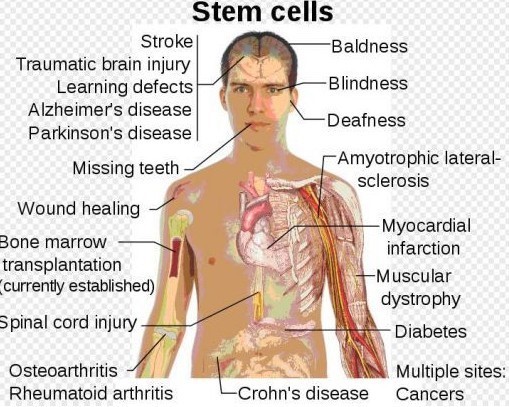Introduction
An innovative approach to regenerative medicine - drug Cocktail-Aided Stem Cell Therapy (CAST)
by Drs. Like Wu, Xiaojuan Wang and Bo Cheng
By Wu Medical Center, Beijing, China
Since a decade ago Dr. Wu and his medical team have started to use stem cells to treat various incurable and untreatable neurological (not limited to) diseases/disorders. From the very beginning of the practice Dr. Wu realized that regenerative medicine, mainly represented by stem cell implantation, would be an ultimate solution for these problems (see Why Choose Us) but the implantation alone is far from enough to make it an effective treatment. The premise of a successful stem cell treatment must guarantee the implanted stem cells to live, grow and function inside the human body. Unfortunately, the internal environment of a sick person is usually pathological making the implanted cells hard to survive. In fact, the internal environment of a healthy person also isn't easy for foreign stem cells to stay alive. Therefore, an artificial creation of an internal environment suitable for the implanted cells to live and function becomes a key issue for any successful stem cell therapy to perform. The method of making the "artificial creation” for stem cell therapy was invented by Dr. Wu using a cocktail of drugs and practiced in Wu Medical Center since then. It’s called CAST (drug Cocktail-Aided Stem Cell Therapy) when used in our stem cell therapy.
CSAT represents a cell therapy for a series of difficult-to-treat diseases aiming at reversing/slowing down the progression of a disease as shown by alleviated symptoms and restored lost function. In those patients suffering from neurodegenerative diseases, their internal environment has become deteriorative and pathological and it won’t allow the implanted stem cells to live and function. That’s where we need to use a cocktail of drugs to make a suitable environment for the new cells to work. For example, in treating ALS/MND patients, the drugs we use in CAST may include Riluzole, Edaravone, Ganglioside Ester, Neurotrophic Factor, Nerve Growth Factor, Creatine and Coenzyme Q10 for this purpose. Together with the personally designed rehabilitation training based on the biofeedback principle, our patients would acquire effective treatment outcomes.
Apart from those typical neurodegenerative diseases such as ALS, MSA, Parkinson's disease, ataxia and dementia, etc, CAST has also been demonstrated by us to be able to effectively treat diabetes, brain/spinal cord injury, muscle disease, retinal macular and optic nerve diseases.
Stem cells technology includes using stem cells to treat disease and produce stem cells products. This belongs to the category of regenerative medicine. At present, stem cells technology is the most advanced, large-scale and highest developed in technology in the regenerative medicine field. In recent years, the Nobel prizes in bio-medical field mostly belong to the stem cells research orientation. The application of regenerative medicine is mainly accomplished through stem cells technology.
The discovery of the therapeutic potential of stem cells offers new opportunities for the treatment of incurable neurological diseases. Base on their biological properties, stem cells act as manufacturers, maintaining the cellular tissue/organ homeostasis in physiological and pathological conditions. Thus, stem cell replacement therapy for central and peripheral nervous system disorders aims at repopulating the affected neural tissue with new neurons, as well as with other neural cells.

